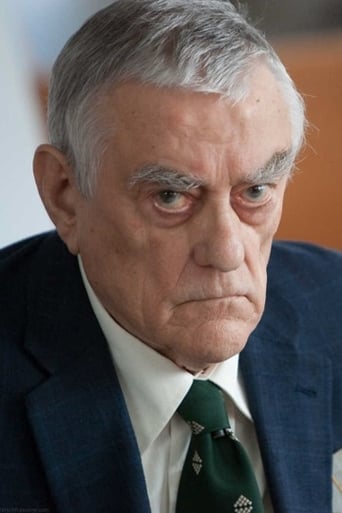Vashirdfel
Simply A Masterpiece
Steineded
How sad is this?
Comwayon
A Disappointing Continuation
Arianna Moses
Let me be very fair here, this is not the best movie in my opinion. But, this movie is fun, it has purpose and is very enjoyable to watch.
Karl Self
A young conscientious objector from Germany -- back in the days when there was still compulsive national service-- serves his term in Oscwiescim running errands for a holocaust survivor, and falls in love with a local girl who wants to escape the mediocrity of the Polish boondocks. This movie is well shot and acted, but the plot is too predictable. Of course, the old guy is grumpy (and not really a great humanitarian who welcomes the idealistic lad), and the young couple grapples with a bit of anti-German sentiment. That's what I expected from the opening credits, and that's what this movie delivers. The fact that the male and female leads are a bit too toothsome detracts from the plausibility of the romance and adds to the predictability of the plot.
tfun28
This film reduces the dramatic form to its most minimal state. It is exactly the opposite to 'Schindlers List'. The difference seems to be, that on one side you have the dramatic (re)construction of historical events with a clear message (bad and good are clearly divided; a hero stands up against state authority (Schindler) to save human lives etc.). 'Am Ende kommen Touristen' on the other side reflects on the problem, that 'in real life' it's much more difficult to learn something out of the past. Moralistic reflections and statements - be it in movies or in real life - about the past have turned into repetitive, self-righteous clichés, that have lost their meaning and their authenticity: What does it mean to say 'Something like that should never happen again'? What political actions (war for human rights etc.) can be justified with past experiences? Why putting up an memorial on a site, where once so many innocent people were killed, when on the other side the present has changed so fast, that the past has lost its meaning? In a way the films message is nihilistic: there is no answer to the question of how the past relates to the present. There can be no lesson drawn from the past - rather the world has become too complex to be fully understood. (And the science of history on the other hand has to solve the problem of relating the past to the present; of persuading the reader that the past is somehow still relevant to the present). Though the film seems rather nihilistic in its political meaning it gives a rich insight in the often painful and desperate efforts of human beings, who try to deal with those problems of the modern world and who try to find explanations of some kind. And after all the film gives hope in so far as in the end the protagonist returns to the memorial center: therefore he is not just escaping from a hyper-complex world, but tries to face it even though he hasn't found any definitive answers and can only listen wordlessly to the standardised reflections about the past of the teacher, who talks to him in the bus.The formal style of the film underlines this enigmatic absence of meaning very successfully: minimal use of music; a very subtle dramatization (e.g.: the story is not about life or death); an open end - all this reminds of the sophisticated style of Eric Rohmer. Certainly one of the best German films of the decade...
abwetman
This film has no clichés, which is amazing considering its subject has had a thousand examinations ,but never from the view of people who it plays little roles in their life.It is a great examination of the still strained relationship of Germany and the rest of European and the dominate role Germany plays in the EU economy.Stuble and fun until the tourist come. You will understand if you get to see this great film I saw it at TIFF.The crowds were extremely ethusiastic about the filmDirector and writer reveals that it is semi auto biographical at a Q and A at TIFF
RonaldoDerErste
"Am Ende kommen Touristen" (literally: "In the end it's tourists coming") is more than a film about Auschwitz today. Actually, it is not even a film about Auschwitz. It is a film about how the abyss of the past transcends into the problems of the present. It is a story of trans-generation and trans-national relations that gain extra-dynamics by the presence of the historical weight of the concentration camp of Auschwitz.In this sense, the film is an amazing piece of story-telling because it catches the hesitations and irritations that we all - especially in my generation - have when dealing with our past knowing that in fact we are handling the questions and relations of today. Additionally, "Am Ende kommen Touristen" has a very subtle way of mixing irony and cynicism, attention and ignorance, anger and joy, closeness and distance without making it feel constructed or misleading. It is not very innovative in terms of film-making or cinematic narrative (therefore 9/10) but it is a very honest story with fondly drawn characters, respect for past and present, and an appropriate ending that is really worth seeing - even more than once!




